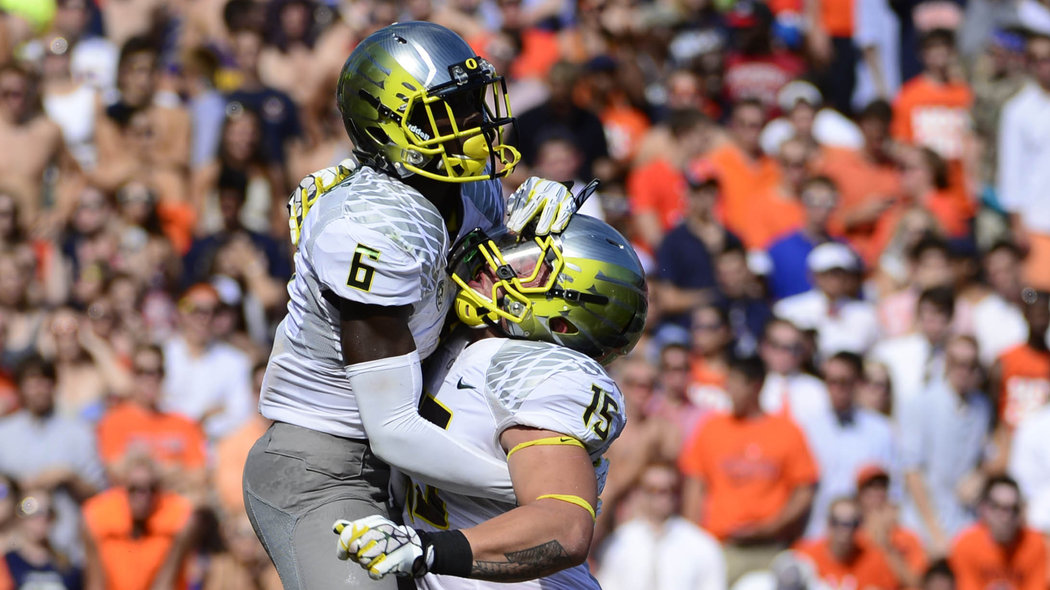Tomorrow (Feb. 1), the Pro Football Hall of Fame decides on the Class of 2014. For the eighth straight year, Andre Reed is one of the 15 finalists. Here's the speech I would give if I was presenting his candidacy to the voters.
Esteemed voters of the Pro Football Hall of Fame: It's time to induct Andre Reed.
Reed played 16 NFL seasons and was an integral part of a Buffalo Bills franchise that made history by playing in four consecutive Super Bowls from 1990 to 1993. He's a seven-time Pro Bowler. His 951 receptions and 13,198 receiving yards rank 10th and 13th all-time, respectively, totals which rank above those of such Hall of Fame wide receivers as Steve Largent, Art Monk, Charlie Joiner, Michael Irvin, Don Maynard, Lance Alworth, Raymond Berry, Charley Taylor, and John Stallworth. Reed's year-over-year consistency is also noteworthy – he caught more than 50 passes in 13 of his 16 seasons, a total exceeded only by the great Jerry Rice at the time of Reed's retirement.
And despite the elevated risk of injury due to the danger inherent in the crossing routes he was continually asked to run, only twice in 15 non-strike seasons did he play in less than 15 games. Few receivers have equalled that remarkable combination of production, longevity, and durability.
Statistical arguments against Reed's candidacy are intellectually bankrupt, but statistics only tell part of the story. Reed may not have been a flashy player with a gaudy yards-per-catch average, but he was a fearless receiver that made his living running crossing patterns, certainly the most dangerous route in football. It was that fearlessness in running across the middle combined with his remarkable ability to make receptions in traffic that opened up both vertical routes and the running game.
And Reed was not a mere possession receiver, either. Steve Tasker stated it the best: "We all loved it because he could turn a nothing five-yard completion into a 65-yard touchdown. That's what Andre's gift was."
Put simply: the Bills offenses of the early '90s did not work without Andre Reed dominating the middle of the field like few others did before him.
As voters you are tasked with considering a player's game-changing ability, and Andre Reed's ability to control his designated part of the field certainly qualifies as game-changing. Never was this ability more evident than on January 3, 1993, the famous "Comeback Game" against the Houston Oilers. Playing with a backup quarterback and his team having spotted the Oilers a 32-point lead, Reed put the Bills on his back and turned in one of the finest playoff performances ever seen, catching eight passes for 136 yards and three second-half touchdowns as the Bills shocked the Oilers 41-38. Reed should be given the same credit for a historically great offense that current enshrinees Jim Kelly and Thurman Thomas are given.
Reed has been impacted, perhaps unfairly, by the presence of other worthy peers at his position for many years. Cris Carter and Tim Brown are good examples, but perhaps the best one is Art Monk. Both Monk and Reed played essentially their entire careers during the same pre-1999 era before the NFL came to be defined as the "passing league" it is today, making their career statistics directly comparable. In 15 seasons, Monk caught 940 passes for 12,721 yards and a per-catch average of 13.5 yards. Until his 2008 induction, Monk's exclusion was considered borderline criminal. Reed's career numbers are not just comparable to Monk's, they're better.
This isn't meant to diminish Art Monk in any way – he deserves to be in the Hall of Fame. Just like Andre Reed does.
The general perception, seemingly in this room and certainly amongst the general public, is that receivers must "pay their dues" before the Hall calls on them. Only five receivers have been elected in their first year of eligibility. Others had to wait their turn. Cris Carter had to wait through six years of eligibility for enshrinement. Art Monk was shut out for eight. Tim Brown is still waiting (and should also be elected this year).
Andre Reed, who this committee has considered a finalist for eight consecutive years, has waited his turn just like those great players did before him. Andre Reed has paid his dues. The passing of time has done nothing to negatively impact Andre Reed's worthiness.
The significance of Reed's achievements should not be lessened by the impact of his peers, his teammates, or even his future competition from a much more pass-happy modern NFL. Like Art Monk and Cris Carter before him, this travesty must end. Make 2014 the year Andre Reed is finally recognized by Canton as one of the game's elite.
Add The Sports Daily to your Google News Feed!
